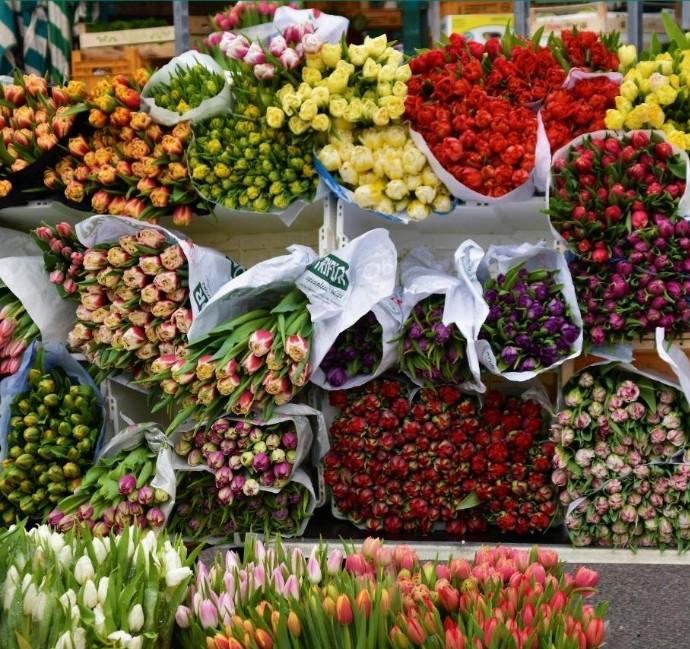Study: consumer attitudes & buying behaviour – phase III
In 2024, we commissioned a study into the attitudes and buying behaviour of flower and plant buyers in the Netherlands, France, United Kingdom and Germany. The study consisted of three phases: an extensive questionnaire in phase I to examine buying motivation and shopper segmentation, a qualitative in-depth study in phase II to examine viewing patterns and presentation in various sales channels, and a final survey in phase III to focus on sustainability. Below is an overview of the most important findings from phase III.

Sustainability and the buying process
In the Netherlands, France, United Kingdom and Germany, sustainability plays a role in the buying process because it affects the choice of shopping location. Regardless of whether sustainable options are used, consumers feel strongly about their availability. However, when choosing between a standard bouquet at a slightly lower price and a sustainable bouquet at a slightly higher price, people usually choose the cheaper bouquet. France is the exception here, where the majority of shoppers are willing to pay an additional 10% for bouquets that claim to be sustainable.
Relevance of sustainability claims
The qualitative study in phase II showed that claims about biodiversity are often positively received. This is especially true in Germany, where we see greater interest in plants that attract bees and insects. But we should be careful with claims about health benefits for nature, animals or people because they are less clear and can polarise opinion. However, buyers are interested in organic products, especially when it comes to edible plants. Consumers have mixed feelings about specific sustainability claims:
- 50% Less Plastic: This claim is the most attractive because it is tangible and verifiable.
- CO2-neutral: Consumers are sceptical and look for more transparency about the implementation and impact of this claim.
- Naturally Grown: This claim lacks relevance and credibility. Consumers want more information about what exactly ‘naturally grown’ means, especially when it comes to cultivation methods.
In short, it is important for sustainability claims to be science based, although they appear to have little to no effect at the moment of purchase.
Labels and logos
Familiarity and relevance differ per country.
- Fair Trade: The best-known and most relevant label in all four countries. It is primarily associated with fair trade and good working conditions, but not specifically with flowers. Many consumers assume that flowers are grown locally and that the working conditions are good, regardless of whether there is certification.
- Planet Proof: Less well-known and attractive, except in the Netherlands, where half of consumers recognise the label.
- Fair Flora: More well-known in the United Kingdom, France and Germany than Planet Proof.
Irrespective of familiarity, labels do not play a significant role in the purchase decision.
Why did we conduct this study?
The results of this study enable us to better respond to consumer wishes and develop strategies that align with their preferences and expectations.
Want to find out more?
The articles about phase I and phase II contain more information.
Still have questions? Feel free to contact Constant Berkhout, Acting Research Manager, at cberkhout@bloemenbureauholland.nl.
Want to read about other studies? Go back to the knowledge centre.
